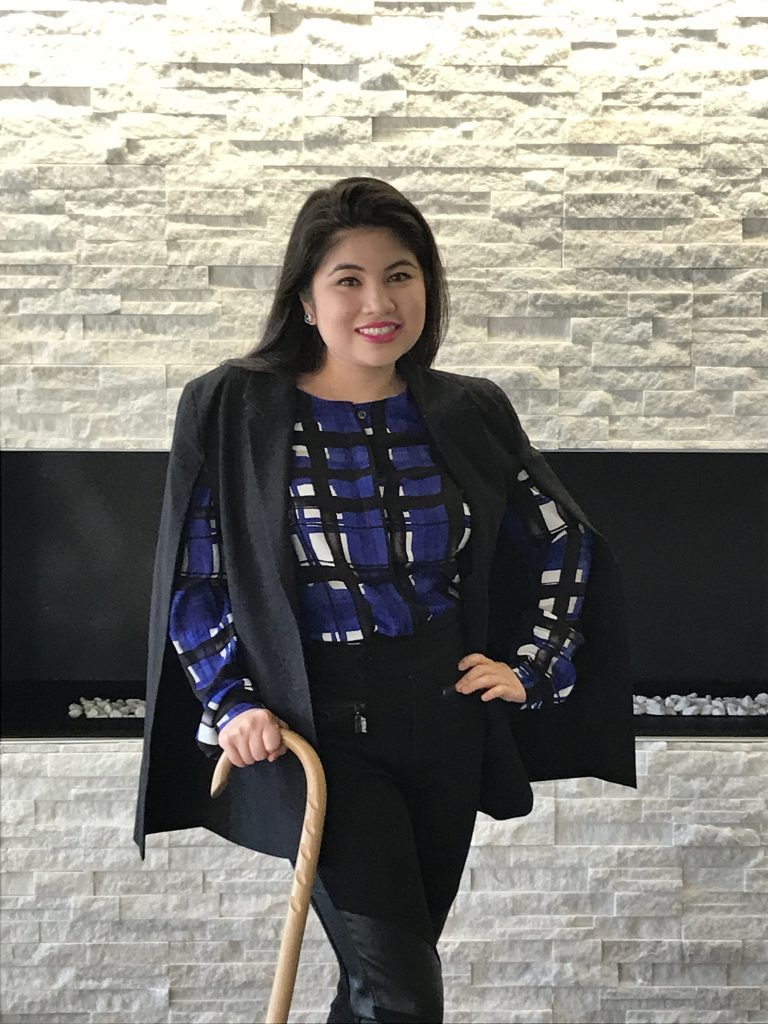Why People With Invisible & Chronic Illnesses Deserve Academy Awards

Last week I had a day where I was really off my A-game at work. The night before I woke up at 2 am and I could not go back to sleep. I had to go through a 15-hour work day with 3 hours of sleep. To top it off, this was a really big day at my job. Now, I’m not brain a surgeon and nobody died. But my boss was not happy. I have bipolar disorder. This disease comes with sleep disruptions. I planned my whole week so I would get enough sleep for that day. But my best laid plans were not enough. In addition to having bipolar 2, I have four other illnesses–three of which cause chronic pain: myasthenia gravis (autoimmune disease that attacks my entire body), polycystic ovarian disease (currently under control), psoriasis, and asthma. I often lack sleep due to hours spent in pain. I am surprised this hasn’t happened before on my job given that I’ve been here for five years. I realized my boss may not have been that understanding because I don’t look sick. There is a certain performative aspect to working with an illness or even socializing. Realistically, if I “look sick,” I won’t get hired for many jobs I seek. But, also if I do not look sick, it can look like I’m slacking off if I’m not at my best. My boss and coworkers know about my illnesses: for one thing, I carry a cane for the myasthenia but people do not understand the full burden of this disease. And they know about the bipolar disorder because they have seen my TEDx Talk, “How to Get Stuff Done When You Are Depressed.” But it’s not something you can see.
“But You Don’t Look Sick”

I know a lot of people with invisible illnesses don’t like it when they hear “but you don’t look sick.” This comment actually does not bother me because my lipstick and wardrobe are an armor for me…and because I’m a little vain. A bold lipstick makes me feel like a badass when I have to go to work tired and in pain. It psyches me up and makes me think, “Okay. You got this. Let’s do this!”
“The Ugly Cry,” Mental Health and Sexist Stereotypes
Last week, I was tempted to go into “the ugly cry” but I did not. I have never done this at this job in my five years here but once eight years ago, at another job, I did the ugly cry. Only a few coworkers noticed–one who graciously took over my shift and the other who said, “We’ve got a crier over here.” In a weird way, my competence is a double-edged sword: If you’re on your A-game 98% of the time, why not today? Especially on such an important day? Being a woman, I feared being stereotyped as “emotional” if I did the ugly cry just one day. On top of that, I have an oft-misunderstood mental illness, bipolar disorder. I told myself, this too shall pass. I gave myself a pep talk that I give myself during difficult moments, You’re a stone cold bitch! You’ve had surgery without anesthesia twice. You can get through this. And I did get through the day. (My pep talks are not flowery “words of affirmation” as much as they are ringside talks trainers give boxers when their fighters are spitting blood and cut badly.)
Back to My A-Game

The next work day, I was on my A-game. I swooped in wearing my Eva Longoria cape blazer, which makes me feel a little like a super hero and matching Eva black pants and printed blouse. (I don’t have a picture of myself at work but here’s a picture of that outfit when I wore it last September to a retreat for healthcare leaders in Illinois. I also wore it when I interviewed New Kid on the Block, Joey McIntyre.)
A Plea For Compassion
Why am I sharing this embarrassing story? I want people to have compassion for people who have invisible illnesses, chronic illnesses, and other conditions–be it at work or other spaces. And I think people with invisible, chronic, and other illnesses deserve Academy Awards. Sometimes, we fool ourselves and sometimes we fool others because we have no choice. There are no easy solutions. We’re all trying our best.
RELATED ARTICLES:
Work & Chronic Illness: How To Find Accommodations
Work & Chronic Illness: 4 Things Not To Say To Sick People
–Your Stylist, Jessica Gimeno





“You’ve had surgery without anesthesia twice”… Oh my!
And the winnner is… Jessica Gimeno!